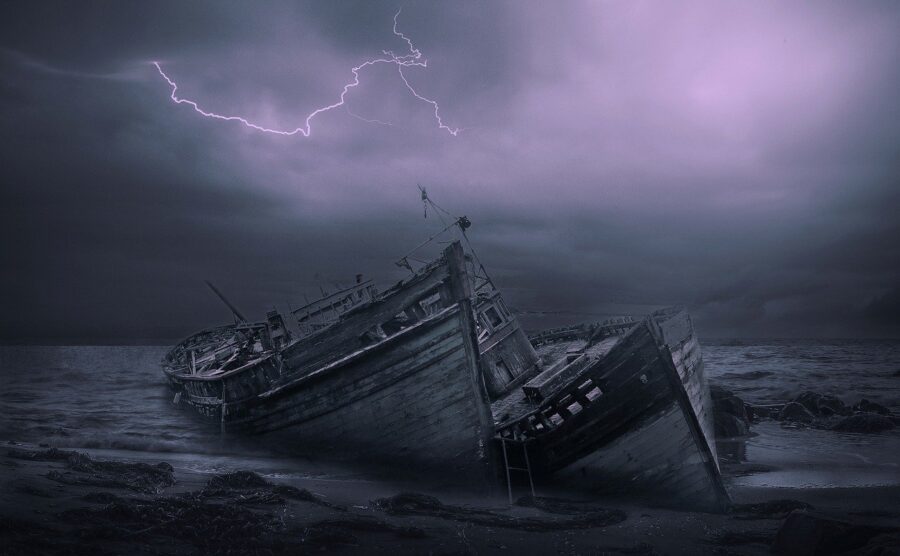Roman Shipwrecks Discovered For The First Time Near Tunisia
Recently discovered perfectly preserved Roman shipwrecks give the best look yet at life in the Roman Empire.

The ocean floor is full of mysteries, but an international team of scientists has illuminated a handful of those secrets in a new exploratory mission. As reported by The National, a project powered by UNESCO, the United Nations Educational, Scientific, and Cultural Organization, has discovered new shipwrecks off the coast of Tunisia dating all the way back to the first century BC.
The shipwrecks were found in an especially treacherous section of the Skerki Bank, a region off the coasts of Sicily and Tunisia. The dangerous waters have claimed many ships over the centuries, making the ocean floor rich with history – and treasure. Ambitious looters have devoured the area, but scientists are working to preserve the cultural heritage beneath the water.
The mission is the largest international UNESCO effort ever executed. A combined effort from scientists from Italy, France, Croatia, Algeria, Egypt, Spain, Morocco, and Tunisia led to the discovery of three new shipwrecks and provided more detailed information on several previously observed wrecks.
Cutting-edge robotics surveyed the perilous area, bringing back 400 hours of video and more than 20,000 still images. The three newly discovered shipwrecks were found in the Keith Reef, one of the most dangerous areas of the Skerki Bank.
The oldest appears to be a merchant vessel. Metal and wooden ships were also found and are estimated to be from the late 1800s or early 1900s. The shipwrecks represent a shared history among the countries of the area.
The multinational effort to investigate the area is emblematic of the commitment the nations involved have to preserve pieces of their culture that the sea has claimed over the centuries. The archaeologists emphasized the importance of their research, noting that shipwrecks are vulnerable, not only to looters but to climate change and the natural degrading processes of the ocean.

The discovery of the three shipwrecks validated a team that had been working on the project since 2018. The surveys took place in 2022, with results published recently.
Robots used in the mission can blow sediment off of artifacts and bring back photo and video evidence, but the team now has its sights set on human exploration of the area. According to the archaeologists spearheading the search of the Skerki Bank, technology is on its way, but it cannot safely retrieve objects from these fragile shipwrecks.
As the team looks ahead to a manned dive off the coast of Tunisia, other parts of the world are calling their names. The three newly discovered shipwrecks represent just a few of the numerous mysteries of ancient history looming at the bottom of the ocean. The team also learned more about Roman vessels that had been previously found, surveying the shipwrecks in greater detail.
The findings represent a truly collaborative effort, with each country involved bringing its own strengths and technological capabilities to the table. A documentary about the team’s work uncovering shipwrecks is set to premiere in Paris later this year. The mission is a testament to what can be accomplished when nations work together, a reminder the world can never hear too often.













